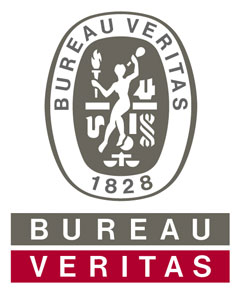Shipping skills will sort the winners from the rest, webinar hears
The Lloyd’s List People power webinar has heard that decarbonisation will require skills that are not yet available to the industry. How quickly these skills are brought on board will be critical to success
SHIPPING must stop believing it’s a closed club with an exclusive membership if it wants to attract the skills and talents to reach the next level, according to an expert panel on the Lloyd’s List’s People Power webinar.
In an age of transformation focusing on digitalisation, decarbonisation and innovation, the industry must also recognise it will need skills it doesn’t currently have.
These skills are more than likely to come from outside the industry, which will mean investing time and effort integrating traditional maritime expertise with non-maritime capability.
The speakers, Clare Pike, vice-president for human resources and corporate social responsibility at Bureau Veritas Marine & Offshore, Annelise Goldstein, chief human resources officer at Maersk Tankers, and Raal Harris, chief creative officer at Ocean Technologies Group, were agreed that traditional views of recruitment and retention no longer wash.
Further, they argued that the customary sourcing of expertise from ship to shore is unsustainable. The world of work is changing — so too the world of training and development.
“You need to become the CEO of your own career,” Ms Goldstein says. There will be a cost to be carried by the learner. However, Mr Harris adds, “people who invest in their own continuing professional development will get the best opportunities”.
Shipping is a cost-conscious industry that has always been driven by price. Now many businesses are revisiting their corporate mission to see whether it is still fit for purpose.
“We are a purpose-led organisation,” says Ms Pike. “We need to know what our mission is, and how people connect with that.”
Mission evolves — in the case of BV, it focuses on shaping a better maritime world. “This isn’t just for the young,” she adds. “Attracting people to the industry is knowing why we are here.”
Onboarding new skills and integrating them into existing teams is only one part of the challenge. Accepting that people take their skills elsewhere is another part, even if these skills are critical to the venture. Speakers addressed the often-sensitive subject of retention in this webinar, acknowledging that skilled people will leave but recognising that they might return — with new skills.
The industry must stop thinking about the division between ship and shore, Raal Harris believes, especially as shipping moves closer to autonomous technology.
“Many roles may move to shore. There is a shift from ship to shore, but the hierarchical command-and-control culture doesn’t work in the office.
“Career pathways might take someone ashore. However, the traditional moving ashore should be reconsidered,” he says, adding: “There must be a mindset of lifelong learning.”
As the skills crunch impacts the industry, so the issues of how to attract the right talent and how to build a culture that will keep them engaged while their expertise evolves, will come to the fore.
Clare Pike pointed out the vital role of senior executives who have a long-term horizon and can see the significance of power skills; Annelise Goldstein said Maersk Tankers had turned corporate culture on its head to put people before business; and Raal Harris recommended that leaders should reflect on their organisation and whether it is set up to meet these skills challenges.
Shipping has complex challenges to solve, which will require new thinking, new skills and behaviour. The old focus on assets is moving to a focus on people and service. Leaders, summarised Ms Goldstein, must create the culture and climate for people to succeed.
A shift in leadership from top-down to enabling is critical to creating a corporate culture that values skills more highly than in the past. Shipping is very uneven in its skills and in maturity in human resources.
This is a discussion that has only just begun.
Please register your details here to watch the webinar recording on demand


